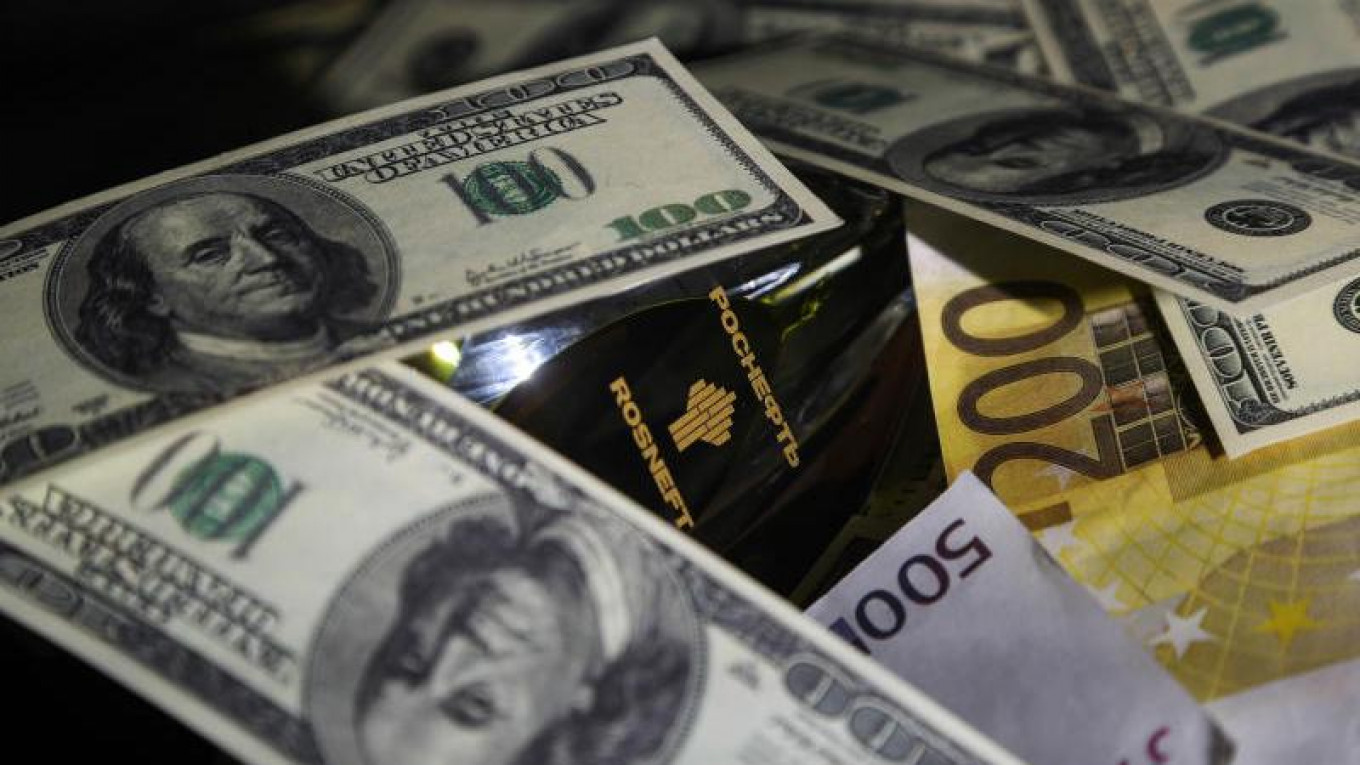Last September, Russia's Rosneft filed an unprecedented 3.1 billion ruble ($49 million)
lawsuit against the RBC media holding company, as well as three of its
journalists, for allegedly causing damage via an article they published.
The RBC article, which was published in April 2016, stated that one of
the terms of the privatization of the Rosneft stake was that the buyer
does not sign a shareholder agreement with BP, a company which itself
owns a 19.75 percent stake in Rosneft.
How did Rosneft calculate this enormous compensation claim?
According to a summary published by the Professional Appraisal Center
(PAC), Rosneft might have based its estimate on “the potential loss of
its largest business partner.” The only business partner mentioned in
the document is British Petroleum (BP).
In order to calculate the damages to Rosneft from the loss of BP as a
partner, PAC experts assessed the impact of the potential risk to the
discount rate (used to calculate the company’s future cash flows). Here
they used such standard indicators for analysis as the investment risk
premium, country risk, and so on, but raised the “specific risk premium”
due to the “additional risk” of losing the business partner.
To
calculate that “additional risk,” PAC used two rates – 0.0007 percent
and 0.045 percent.
Applying these rates to the value of the invested capital and equity,
and also to the goodwill of the company, the experts concluded that the
“goodwill would decrease by at least 3.12 billion rubles,” and by as
much as 20.2 billion rubles.
Rosneft's reports, however, show no change
in the company’s goodwill before and after the RBC article – listing it
as 227 billion rubles in both late 2015 and June 30, 2016.
The document does not explain why these particular values were used for
the discount rate.
Berkshire Advisory Group's CEO, Irina Vishnevskaya,
said that no standard method exists for measuring that factor and it is
therefore impossible to know exactly why the evaluators decided to
discount Rosneft's cash flows by 0.007 percent over the risk of a
partner’s exit.
PAC also considered how the RBC publication might decrease Rosneft's
capitalization.
It drew no conclusions as to whether the article
negatively affected Rosneft's share prices, its reputation, or its
relations with business partners, including BP. It only assessed the oil
giant’s “potential losses.”
The demand for 3.1 billion rubles for loss of goodwill is a record high
in Russian practice.
According to IFRS, RBC had unaudited revenue of 2.4 billion rubles for the first half of 2016 and an operating profit of 56 million rubles. The understanding of “losses” consists of actual damage and lost profits. According to Mark Karetin, partner at Yukov and Partners, the Rosneft claims fit neither category: the company is trying to gain compensation merely for what it alleges is the newly-emerged risk of future damages.
It is highly unlikely that the court will grant Rosneft's demand for
compensation, according to Vyacheslav Losev, managing partner at Losev
and Partners. The court might order compensation for actual losses, but
probably in the millions, not billions of rubles, according to BGP litigation advisor Sergei Lisin.
A Message from The Moscow Times:
Dear readers,
We are facing unprecedented challenges. Russia's Prosecutor General's Office has designated The Moscow Times as an "undesirable" organization, criminalizing our work and putting our staff at risk of prosecution. This follows our earlier unjust labeling as a "foreign agent."
These actions are direct attempts to silence independent journalism in Russia. The authorities claim our work "discredits the decisions of the Russian leadership." We see things differently: we strive to provide accurate, unbiased reporting on Russia.
We, the journalists of The Moscow Times, refuse to be silenced. But to continue our work, we need your help.
Your support, no matter how small, makes a world of difference. If you can, please support us monthly starting from just $2. It's quick to set up, and every contribution makes a significant impact.
By supporting The Moscow Times, you're defending open, independent journalism in the face of repression. Thank you for standing with us.
Remind me later.






